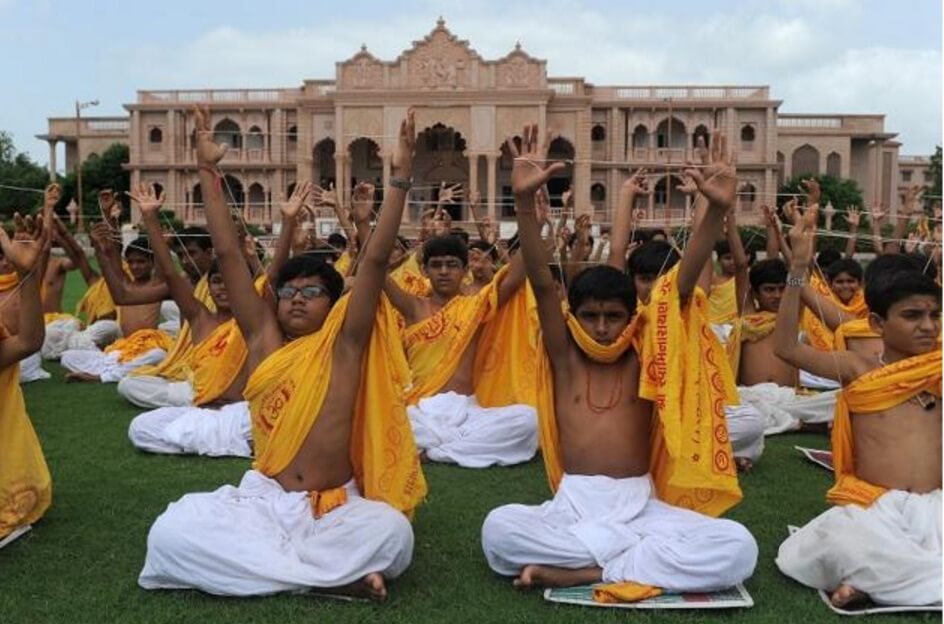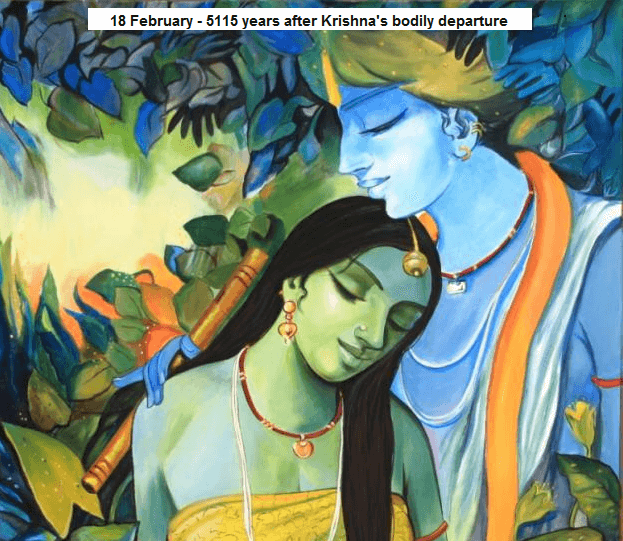 Nirupama from Kolkata had sent a message to me: “My parents are looking for a bridegroom for me. How can I marry a person whom I don’t know before? I read all your articles related to love, marriage and sex. But it doesn’t give an explicit answer. How can an arranged marriage work in this modern world? Those old traditional people know nothing about love. How can I love an unknown man? How can I be devoted to him?”
Nirupama from Kolkata had sent a message to me: “My parents are looking for a bridegroom for me. How can I marry a person whom I don’t know before? I read all your articles related to love, marriage and sex. But it doesn’t give an explicit answer. How can an arranged marriage work in this modern world? Those old traditional people know nothing about love. How can I love an unknown man? How can I be devoted to him?”
I asked her to call me over phone. Then I told her the following story in which the couple, according to me, is a perfect example of love and devotion.
Vachaspati Mishra (900–980 CE) was born in Mithila region (frontier between India and Nepal) what is now Vachaspati Nagar (Andhra Thardhi), Madhubani. He was a great Indian philosopher and founder of one of the main Advaita Vedanta schools, the Bhāmatī School. His mother, Vatsala, had borne much pain to bring him up as a single parent. When she became quite old, she brought a proposal of a girl from neighboring village and insisted her son to marry the girl.
Vachaspati conveyed this message to the bride’s father: “My sole goal in life is to write the gloss of the Bhasya (Commentary) on ‘Vedanta Sutras’ (Brahma Sutras) of ‘Badarayana Vyasa’. This is my service to humanity. Those scriptures are dearer to me than even life. I won’t be able to perform the responsibility of a Grihastha (family man). I doubt if I can be a good husband. There is nothing else in my mind other than writing the Bhasya of Brahmasutra. I haveeven taken an oath to take to life of Sanyasa (renouncing family life) after writing this.”
(For those who do not know about ‘Brahma Sutra’ – If Brahma Sutra is an ocean, the entire spiritual philosophies ever existed all around the world can be contained in just a spoon of water)
The bride’s father respected the young brilliant scholar and his frankness, humility and honesty. But he was apprehensive of getting his daughter married to him. But the girl said: “I am willing to abide by all the conditions”
The bride’s father explained this to Vatsala and asked Vachaspati:” Would you like to meet her?”
Vachaspati smiled at him and said: “She has already chosen me so I don’t have any right to negate her choice”
He married Bhāmatī on Vyasa Purnima (Guru Purnima) day in the month of Asadha. But for Vachaspati that was the most auspicious day to begin his monumental work. The moment he reached home with the bride, he sat on the verandah of the house and started writing. He continued writing day and night. Everything – months, seasons and surroundings – were changing all around, but not for Vachaspati. It was as if he didn’t exist in the normal plane of life. Except for his few physical needs – bath, little food and few hours of sleep – he was fully immersed with the work.
While Vachaspati Mishra was writing his commentary, his wife Bhāmatī served him without any expectations for years.
He was so busy that he had forgotten that he had a wife. He always found that the palm-leaves were kept ready at hand, the lamp well oiled, his clothes washed and fresh and the food kept at appropriate time. He never bothered to think how such things happen. For all these years, he thought about nothing else, saw nothing else and heard nothing else.
One fine night his book of commentaries was completed, so Vachaspati was about to get up from his seat and suddenly in the lamp light, he found a woman quietly serving him his dinner plate. He asked her, “Who are you and what are you doing here at this time?”
She replied, “You were so immersed in writing the commentaries that you have completely forgotten that many years ago you had married me. I am Bhamati, your wife!”
Vachaspati was shocked to realize that for 7 years his wife had been serving him dutifully without him even being aware of it. It was she who was looking after his every need, and yet he had never seen her! Tears rolled down his cheeks but Bhamati had no complaints. She said she is proud to have a husband like him and has been very blessed to associate with him in letting him finish the great work.
Vachaspati said, “Yes, I remember now. Please show me your hands and I will recognize them.”
He looked at her hands and said: “These hands have been putting the lamp by my side and serving me my dinner every day after sunset. I know these hands…. But now it is too late, as I have taken a vow that the day I finish my commentaries, I will take ‘sanyasa’ and leave the house!”
Vachaspati expressed his immense gratitude for his wife and said,”You are a rare woman”.
Bhamati said, “It would have been very un-loving to disturb you, so I was waiting… but don’t worry. I will never come in your way. It is enough for me that, I got to serve you and I know that you love me. This is enough to cherish for my whole life!”
Vachaspati was spell-bound, he said, “There could be many commentators like me, but nobody can find a woman of your quality, with such unconditional love, patience and such greatness of heart! I will name this book of commentaries ‘BHAMATI’, so that, whoever reads this book is bound to remember you!”
As a tribute to the great wife’s sacrifices he named his commentary on her, Bhamati. “All I have – my life goal, my karma, life’s work and purpose of life – I am surrendering to your feet. Still, I think nothing can match your love” he said. The writing of the book was his life goal.
(The book in Sanskrit called ‘BHAMATI’. Although there are many other commentaries on the BRAHMASUTRAS, it is said that, one of the best commentaries is ‘BHAMATI’, which is the name of a dedicated a wife and her love.)
“What will you do, my devi, when I am gone? And how will you look after yourself?”
With smile she replied: “Pati dev (Husband), the force that brought me to you and gave me this opportunity to serve you, will look after me. Your devotion and sincerity towards work will keep inspiring me”
Then Vachaspati left for the Himalayas, but he could not forget Bhamati and her qualities, her grace and her divine beauty… something beyond human qualities. Vachaspati remains a great scholar, but Bhamati proves to be a far more divine being.
Later even his followers came to be known as the persons belonging to her school. Bhamati looked in deep respect and love.
Nirupama was speechless for some time.
I told Nirupama: “And you say our ancestors did not know about love! Love is different from all your concepts developed by market-media. It is timeless. Marriages can be self-arranged or family arranged or inter-caste/religion. You can live as a family, produce children and die. But what’s the use to humanity if the spouse does not have love and devotion and a kind heart? What if the person you or parents choose is a selfish moron?” I asked her.
By
Udaylal Pai
Let’s share and care. Let’s get connected:
Facebook: udaylal.pai
E-mail: uday.pai@aol.com
Website: www.udaypai.in
Blog: http://www.speakingtree.in/udaypai/blog
© Uday Lal Pai. Please contact the author for re-posting or publishing at uday@udaypai.in










